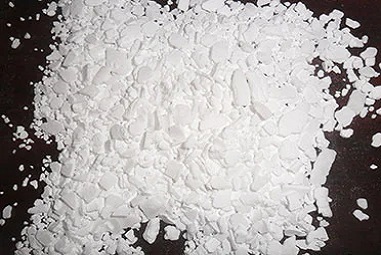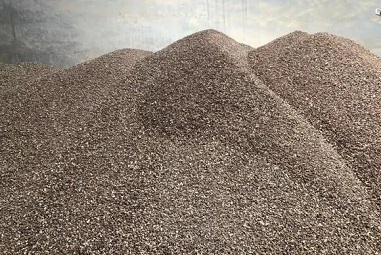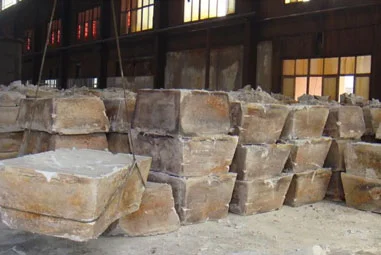Potassium cryolite is a chemical mineral with the chemical formula, which is the potassium salt form of cryolite (Na3AlF6). It typically appears as colorless or white crystals or powder and has a structure and properties similar to cryolite. Potassium cryolite is an important industrial chemical mainly used in aluminum smelting, glass production, and some other specific chemical applications.
Grinding wheels are indispensable tools in industrial production, often referred to as the "teeth of industry," and are widely used across various sectors. Grinding wheels are a complex system composed of multiple main and auxiliary raw materials. The principal materials are abrasives and binders, while the auxiliary materials include fillers, reinforcing materials, etc. In contemporary grinding wheel production, cryolite (Na3AlF6) is widely added as an auxiliary material and has become an essential material.
However, since the 21st century, industrially developed countries like the United States, Japan, and Western European countries have gradually replaced conventional cryolite with potassium cryolite (KAlF4) in grinding wheel manufacturing. As of now, this replacement process is almost entirely complete. Yet, as of 2011, about 80% of grinding wheel manufacturing enterprises in China still used conventional cryolite. Only a few enterprises began replacing conventional sodium cryolite with potassium cryolite, and a few others started using a mixture of both types of cryolite.
It can effectively reduce the dust raised during the grinding and cutting processes of resin grinding wheels, contributing to environmental protection and improved workplace hygiene conditions.
Due to the unique composition and chemical structure of potassium cryolite, it is neutral with a pH of around 7, which can more effectively enhance its role in grinding and abrasives, increase the grinding efficiency of the grinding wheels, and improve the working speed of the grinding wheels.
The higher price of potassium cryolite compared to conventional cryolite is a drawback. However, potassium cryolite, as a by-product of aluminum-titanium-boron grain refiner manufacturing enterprises, not only matches the quality of professionally produced potassium cryolite but also has a strong price advantage, making this kind of minerals non metallic highly competitive in the market.
Since the use of potassium cryolite in China's grinding wheel industry is still in its initial stages, potassium cryolite has a vast potential market not only in China but also in developing countries.


